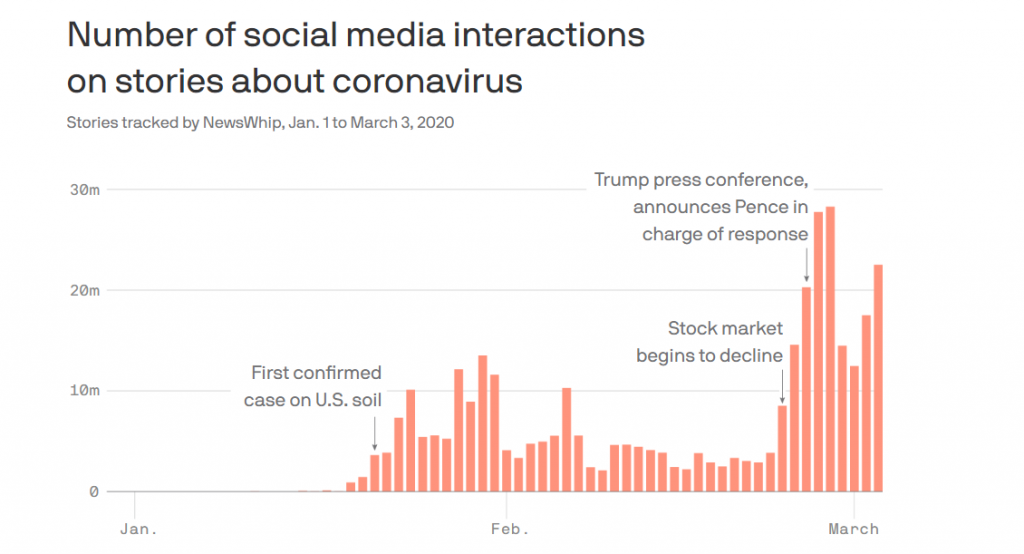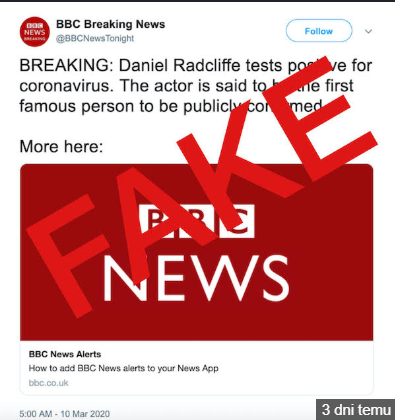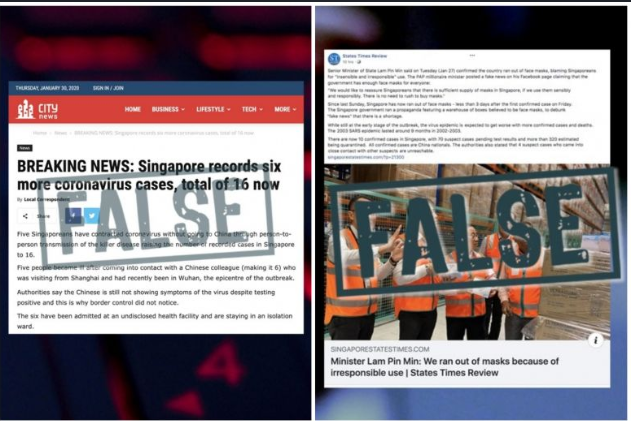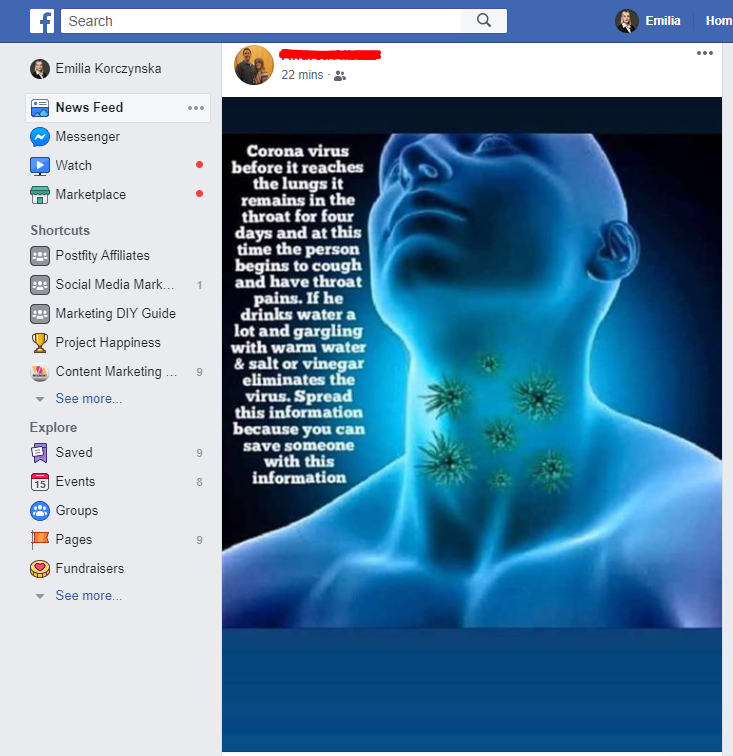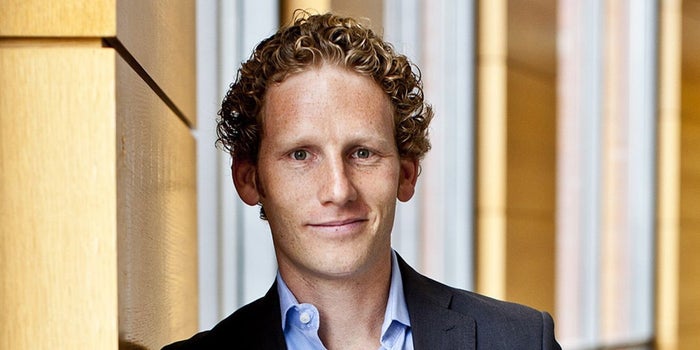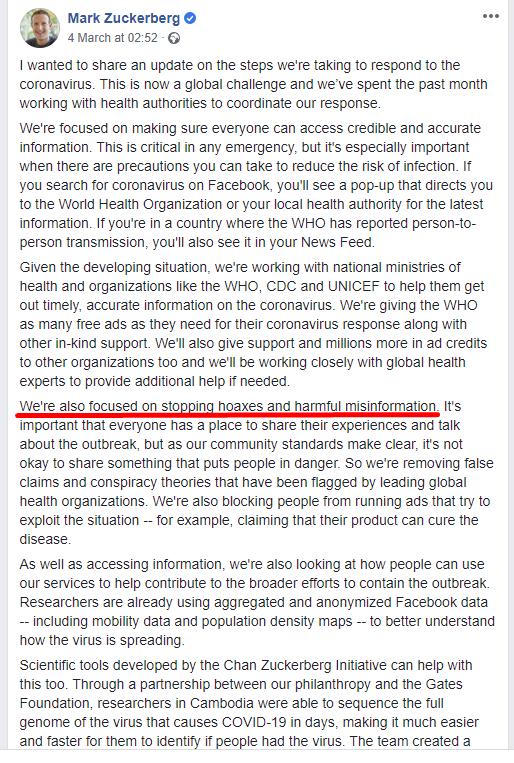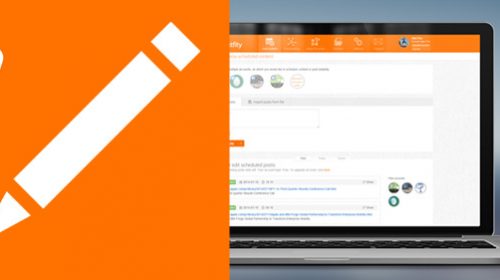Fake News spread more quickly on Facebook, Twitter and Instagram than the virus itself. In the words of the WHO Director-General even stated: “We’re not just fighting an epidemic; we’re fighting an infodemic.” With over 120,000 people infected and 4,300 deaths and a 3% death rate, coronavirus is the no #1 topic trending on social media.
Coronavirus Fake News on Social Media
The fake news about coronavirus spread on social media like wildfire: claims that coronavirus may be a biological weapon that was ‘accidentally’ released from a lab near the fatal street market in Wuhan; that it’s simply a hoax, or verious medically-dubious coronavirus treatments: that it can be cured by onion or garlic or gargling warm water with salt and vinegar (this actually landed on my wall today:)
Wrong numbers of patients and fatalities abounded, just like information about the safety measures introduced by the different governments.
And while the misinformation about coronavirus is harmful and sad, there’s a lesson that we can take from it on the anatomy of viral content on social media:
The Anatomy of Viral Posts – why do Coronavirus Fake News Spread So badly?
Coronavirus has affected almost everyone in Asia, Europe, and the US – one way or another. While you or your family may not have experienced the symptoms yet, you are probably feeling worried: about your health, your business under the lockdown. You may be worried about your elderly relatives, or your sanity when working from home while looking after the kids who couldn’t go to school, or whether there will be enough food and toilet paper to survive until the panic dies down.
Everybody is experiencing fear. Fear is one of the strongest emotions that trigger human reactions. And according to Jonah Berger, author of the book ‘Contagious – Why Things Catch On’ – strong emotions that trigger action are one of the greatest predictors of whether something will go viral online. Here are the other factors which explain perfectly why fake news about coronavirus spread on social media like wildfire:
- Social Currency – the concept that people want to appear ‘in the know’, ‘smart’ and ‘cool’ to their social circle, hence they are more likely to share the news that show they know more abotu the situation than everyone else and share ‘news’ as soon as possible – without verifying the sources;
- Triggers are stimuli that remind people of your product or service – e.g. specific sounds or images triggering the thoughts of a certain product or service.
- Emotion – especially arousing (as opposed to depressing) emotion: obviously, the fear, anger and frustration related to coronavirus (and the government actions)
- The quality of being Public – if something becomes of wide public concern, it will more likely go viral. According to Christoforos Zafeiris, a marketer at Moosend: ‘virals are usually based on social issues’.
- Practical Value – how useful the information one is sharing is. Obviously, in the hard times of an epidemy, we tend to think that ‘every little helps’ – so we are keen to share information about potential treatments – even if we’re not entirely sure it’s correct.
- Stories – things that go viral are usually wrapped in a compelling narrative. The coronavirus-related stories of people under lockdown, survivors, doctors and patients about – and are of course, very relatable and emotional. So they become a frequent object of sharing – whether they’re right or not.
How do Social Media React?
The Social Media reacted quickly:
- Facebook banned coronavirus fake news and the sale of medical face masks via its profiles. Also – it promoted safety by offering governments and WHO as many free ads with health advice as they want.
- Twitter highlighted official reports about how to react to symptoms and reacted to or removed conspiracy theories and fake news.
- YouTube removed videos that advised people against seeking medical help.
How Social Media are actually helping in the Coronavirus epidemy
On the flipside, there are so many ways that social media play a positive role in the coronavirus epidemy:
- Facebook is allowing WHO and local governments to use Facebook ads for free for public service announcements.
- Social Media (especially Facebook) supporting and propagating WHO Fundraisers for fighting the COVID-19 epidemy
- People are providing moral support and grieving space for those affected by the virus
- Social media promote responsible social distancing movements like #stayathome
- Employers are leading by example by showing that they allow their employees to work from home
- A lot of business pages are rewarding their customers with discounts if they choose the delivery option to support social distancing
- Parents of children affected by school closures and lockdowns are sharing home schooling tips etc.
So – in conclusion – social media do more good than harm in the coronavirus epidemy – if used wisely, of course.
Final thoughts
If you’re quarantined, under lock-down, worrying for your elderly relatives or your business, or simply frustrated with work-from-home (and running out of toilet paper) – jia you!*
[*The Chinese cry of encouragement meaning literally ‘add oil’, which was shouted from windows in Wuhan under lockdown].
